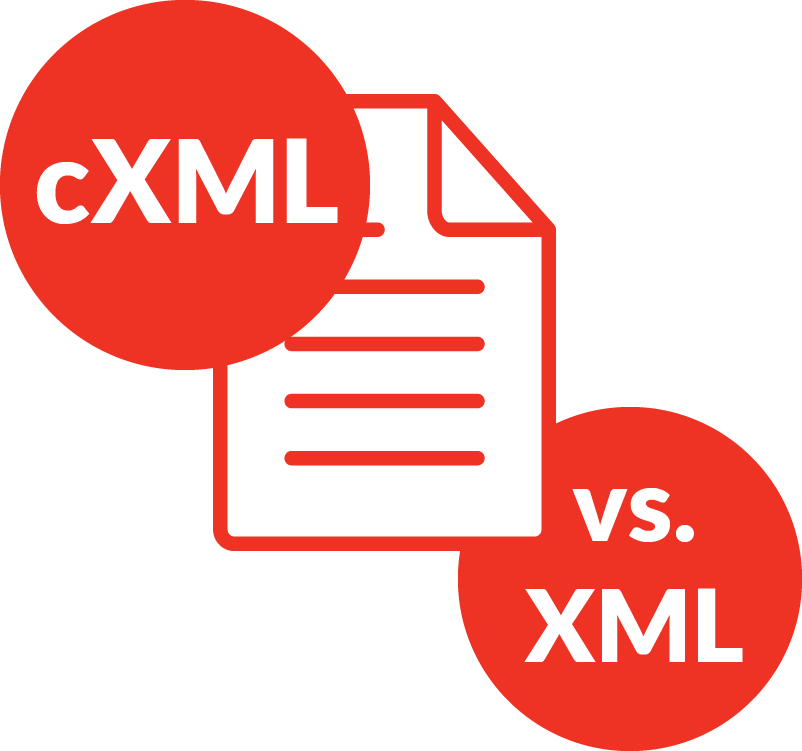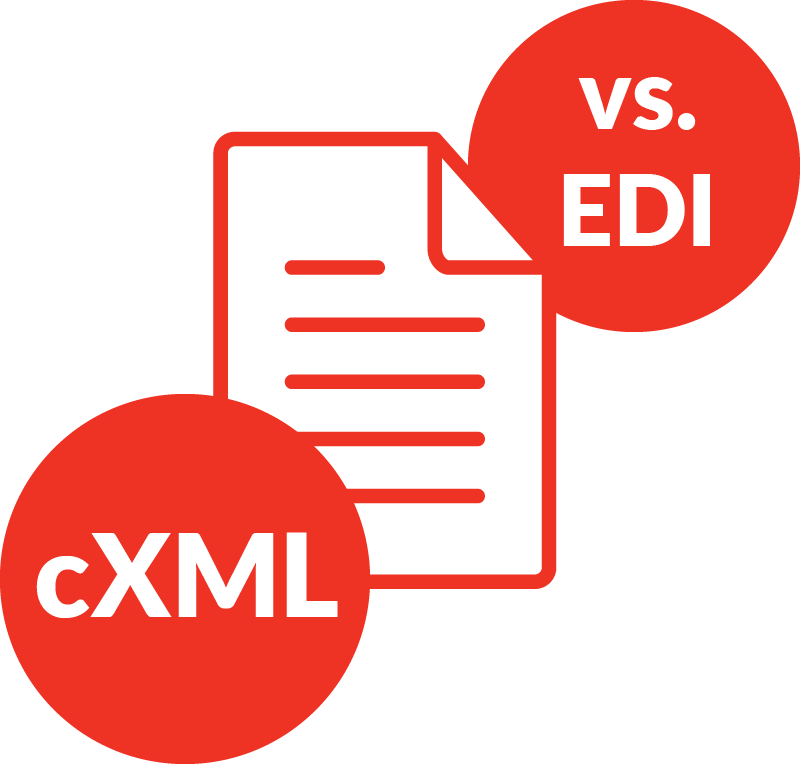 cXML: Grow your Business with PunchOut
cXML: Grow your Business with PunchOut
By Logicbroker | April 2, 2021
Created by Ariba in 1999, cXML1 is the integration choice for large procurement software including Ariba, Workday, and Coupa and high-volume buyers and sellers. When looking to set up communication, many organizations evaluate cXML, XML or EDI options.
An advantage of choosing cXML is the ability to utilize PunchOut, “a protocol for interactive sessions managed across the Internet, a communication from one application to another, achieved through a dialog of real-time, synchronous cXML messages, which support user interaction at a remote site” (cXML.org). PunchOut is a way to make a product catalog seamlessly available inside B2B customers’ own procurement application. Currently, cXML is the only way to implement PunchOut today.
As more and more businesses begin to adopt eProcurement solutions for their B2B purchasing it is essential for suppliers to become equipped for PunchOut. Additionally, PunchOut helps businesses stand out from competitors and sell more by tightly integrating with their existing customers’ purchasing technology. Businesses utilizing PunchOut will also gain new customers with the ability to display products to the largest companies.
According to cXML.org, additional benefits of cXML include:
- Easy implementation for automated order receipt, fulfillment updates and catalogue transport
- Out-of-the-box protocol functionality
- cXML is the most widely adopted B2B protocol
- Extensible: If your buyer relationships require more information than cXML supports intrinsically, that data may still be sent end-to-end
- Leverages XML, which is the most robust language for describing information
- cXML is the only B2B XML standard that leaves much of the syntax from EDI behind
cXML vs. XML
cXML is the commerce-specific subset of XML. Unlike XML, cXML utilizes schemas, lists that inform programmers how to reference specific fields when creating data. These schemas enable cross-company communication and are much more flexible than standard XML, which would require developers from each company agreeing upon specific fields prior to document exchange. Schemas facilitate document modification and validation without prior knowledge of their format.
cXML vs. EDI
cXML was created around 30 years after EDI (electronic data interchange) as a less expensive and less complex alternative. A majority of the cXML standards are based off of traditional EDI documents, including purchase orders, advanced shipment notices and invoices. While EDI has modernized and is much less complex today, cXML is still viewed as a more flexible and variable exchange.
When you are ready for PunchOut, Logicbroker can quickly and seamlessly integrate your eCommerce, ERP or other back-end order management system with any eProcurement platform from SAP Ariba to Zycus. By providing a single endpoint for cXML purchase orders and mapping to our standard internal schema Logicbroker can provide you with CSV, XML/cXML, JSON or EDI data according to your specific requirements and make them available via FTP/SFTP, HTTP/HTTPS, AS2/EDI or REST/API protocols.
Through our suite of API connectors, PunchOut orders can also be seamlessly integrated with eCommerce platforms such as Shopify, Magento and ShipStation.
Logicbroker also provides a single endpoint for your standard return documents including Acknowledgements, Shipments and Invoices. No need for you to worry about varying standards, requirements or protocols. Utilizing our business rule and validation engines Logicbroker will map your data to the correct format regardless of eProcurement platform, PunchOut partner or protocol.
cXML is the language of eProcurement and Logicbroker’ cXML expertise can help you easily integrate with B2B partners to grow your business.
1 Commerce eXtensible Markup Language, better known as cXML, is a streamlined protocol intended for consistent communication of business documents between procurement applications, eCommerce hubs and suppliers (cXML.org). Current cXML standards include setup documents, application integration, catalogue content, original/change/delete purchase orders and responses including invoices, advanced shipment notices, and purchase order acknowledgements.
Modern dropship & marketplace solutions have never been so easy.
Are you ready to drive growth and gain unparalleled speed to market with a modern, scalable dropship or marketplace program? Fill out the form below to get in touch with our team:

